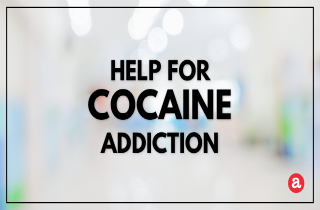Cocaine addiction help
Cocaine, in all of its forms, is a powerful stimulant that directly affects the central nervous system. In fact, when comparing cocaine addictive-ness with other drugs of use, cocaine is extremely addictive. So where can you find help for cocaine addiction? Here, we explore cocaine addiction treatment options and where to go for cocaine addiction help. Then, your questions about cocaine are invited at the end of this article.
How to help cocaine addiction
There are three main phases of cocaine addiction treatment. First, you go through withdrawal and detox which is related to how cocaine works in the brain. Second, your body stabilizes physically. And last, you seek psychological treatment for long term sobriety. Here, we examine each of these phases of treatment in more detail.
1. Cocaine withdrawal and detox
The initial step in cocaine addiction treatment is getting cocaine out of your body. If you are dependent on cocaine, unpleasant withdrawal symptoms occur when you significantly lower doses or stop taking cocaine completely. Cocaine withdrawal begins with an almost immediate “crash” followed by the overwhelming craving for more cocaine. Unlike heroin or alcohol, cocaine withdrawal typically manifests as psychological symptoms such as anxiety, depression, fatigue, nightmares and in some cases, extreme suspicion.
Many people attempt to cope with these symptoms by using another stimulant like alcohol, sedatives or antianxiety medication. This is not recommended, for it is simply substituting one substance with another and could potentially lead to another addiction. Getting off cocaine is not an easy process, and if handling cocaine detox on your own doesn’t seem plausible, there are addiction professionals and detox clinics can help provide you with the support you need.
2. Achieving physical and mental stabilization after cocaine withdrawal
Depending on the duration and severity of the cocaine addiction, drugcravings and associated PAWS (post-acute withdrawal syndrome) like depression may last for months. To help yourself stay on track and not fall back into destructive habits, try to recognize people, places and situations that will tempt you to use cocaine and avoid at all costs. For additional support, programs like Cocaine Anonymous and SMART are there to provide you with a community and the emotional guidance that you need to succeed. Additionally, a supervising doctor or psychiatrist can help diagnose and treat underlying mental health disorders such as anxiety or depression with antidepressant medications.
3. Psychological cocaine addiction help
Helping treat your psycho-emotional thoughts and beliefs is key to long term sobriety. The guidance of a psychiatrist or psychologist can help you deal with past issues that may have driven you to use cocaine. In addition to working through incidents of trauma, psychotherapists help you identify and avoid triggers for use. Psychotherapy also helps you cope with any lingering withdrawal symptoms (especially strong drug cravgins) you may be experiencing.
Getting help for cocaine addiction
Recognizing a problem with cocaine and the desire to change it is the first step to recovery. Yet in most cases, the path to recovery isn’t something that can be achieved alone. Who can you go to for help?
Friends and family – Telling those close to you is an important first step in getting help for cocaine addiction. When you have the support of friends and family, the process of getting clean will seem a lot more possible.
Physician – General physicians or family doctors are a good place to start getting help for cocaine addiction. MDs are non judgmental medical professionals educated about addiction who can be the first point of contact in your journey towards a drug free life. Your physician can provide you with detailed information on what cocaine has been doing to your body. They may also be able to refer you to a detox clinic or a mental health professional.
Cocaine addiction treatment centers – There are treatment centers all over the country whose mission it is to help people struggling with addiction. These facilities offer full service, 24 hour addiction help. Inpatient cocaine addiction treatment centers provide you with a community where you can commit all of your time and energy to getting clean without the distractions and temptations of your own environment.
Psychologist or psychiatrist – Many people who become addicted to cocaine and other substances suffer frompast issues like depression or anxiety or from trauma. A psychologist or psychiatrist can help you deal with those past issues along with cocaine withdrawal symptoms.
How to help a cocaine addict
If you have a loved one that is suffering from cocaine addiction there are ways to help. The most important thing to do is to stop enabling the behavior. Do not give a cocaine addict money. Stop making excuses for your loved one. Allow the cocaine addict to experience consequences of cocaine use. Other ways you can start helping a cocaine addict include:
- Try hosting an informal intervention with close family and friends
- Host a formal intervention with the guidance of a health care professional like a drug counselor or psychologist
- Get information from an addiction professional
- Immediately stop enabling addictive behavior
- Research local support groups and rehabilitation centers
- Seek family therapy to address possible systemic dysfunction in the family group
Cocaine addiction help and helplines
Help is out there. For more information on cocaine addiction, try this government resource:
1-800-622-HELP: A federal directory of addiction treatment centers and detox clinics. Or visit findtreatment[dot]samhsa[dot]gov to access a behavioural health treatment services locator. (Sponsored by the Substance Abuse and Mental Health Services Administration, SAMHSA).
Help with cocaine addiction questions
If you have any questions or comments on the topic of help for cocaine addiction please leave a comment at the bottom of the page. We will get back to you as soon as possible.









Related Posts